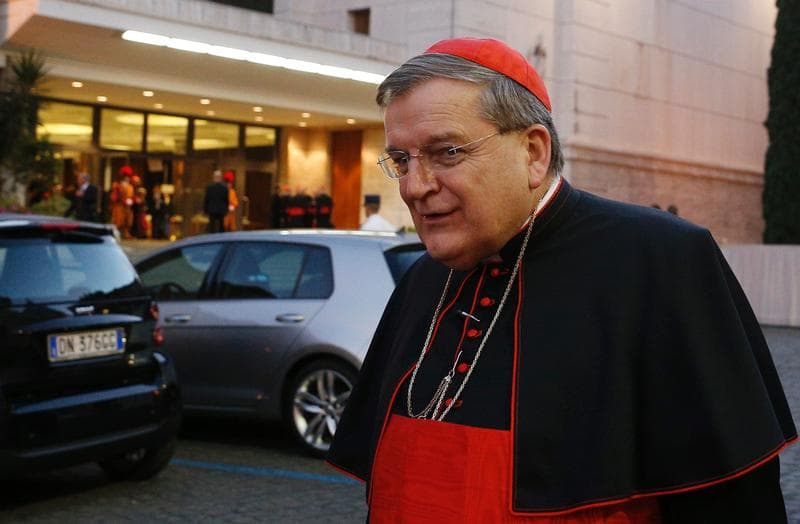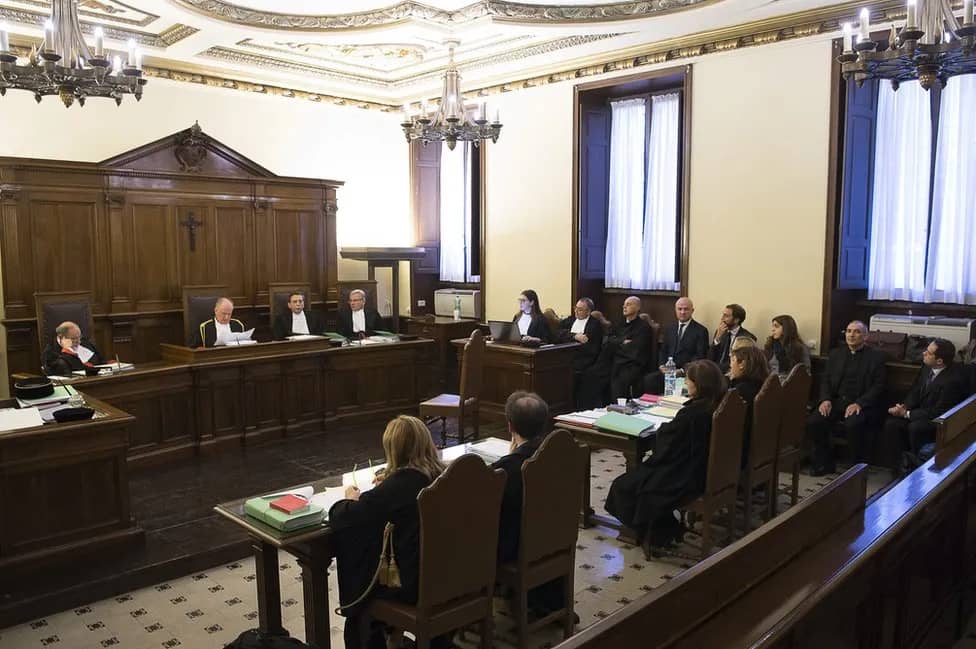Cardinal Raymond Burke says he is “sympathetic to the situation of people who are suffering, because of matrimonial difficulties,” in a new interview published on Sunday.
The cardinal, a critic of calls for married and divorced people to be allowed to receive communion, said “less than a truthful response” isn’t “worthy” of people in these situations.
He was speaking to the podcast Thinking With the Church, and said too many people he meets are concerned and confused by the ongoing debate on the issue.
Until 2014, Burke was the Prefect of the Apostolic Signatura, the Vatican’s highest appellate court. He was removed from his post by Pope Francis, and now currently serves as the Patron of the Sovereign Military Order of Malta.
Burke and three other cardinals last year presented the pontiff with five doctrinal questions – so far unanswered – they wanted him to clarify about his marriage document Amoris Laetitia, mostly about the issue of communion for the divorced and remarried.
RELATED: Burke again says Pope must answer ‘Amoris’ questions
“In the whole history of the Church, it’s never been possible that someone who was living publicly in a state of sin, for example a person who is bound in matrimony to one person, is living in a marital way with another person, it has never been permitted that such a person could approach to receive Holy Communion,” the cardinal said in his latest interview.
“Now, suddenly, there are those, who are saying, ‘Oh, yes, but it is possible in certain cases,’ and so forth – but if this is something that is always and everywhere wrong, how is it possible that someone who is living this way can receive the Sacraments?”
RELATED: On ‘Amoris’ and speeders who shouldn’t be treated the same
Burke said couples in such situations – for a just reason – may receive the sacraments if they refrain from sexual situations.
“The Church has always helped such couples,” he said, “… the point is this: that the couple has the firm resolve to live chastely, and to take all measures to live chastely. If they fail, on one occasion or another, then they simply have to confess that, and renew their effort to live chastely.”
Burke was also asked about the argument made by Italian Cardinal Francesco Coccopalmerio, who last month wrote a book on Amoris Laetitia saying Catholics in “non-legitimate” situations can receive Communion as long as they want to change their situation but cannot act on their desire because doing so would lead to further sin.
Coccopalmerio in the book offers a concrete situation as an example of a case in which a person, “knowing about the irregularity of [his or her] situation,” has great difficulty changing their situation “without feeling in their conscience that they would fall in a new sin.”
According to Coccopalmerio, Amoris Laetitia implicitly stipulates that to be admitted to the sacraments the men or women who, for serious motives such as the education of their children, can’t fulfill the obligation to separate, must nonetheless have “the intention or at least the desire” to change their status.
Burke said he disagrees, since “the person can’t make a firm purpose of amendment, because he or she knows perfectly well that the marital relations will continue.
“I think the Church has always taught that a special compassion, a special help, a special pastoral care must be given to couples who find themselves in this situation, especially those, who find themselves in a very stressful situation – but that pastoral care can’t include the offering of the sacraments,” Burke explained, “that doesn’t make any sense.”
He admitted things can be “complicated,” but added “that simply is the way human life is, and some are beset with more suffering than others – but in the end the point is this: that one has to work toward achieving a chaste way of life.”
Burke said doctrinal development “means that we have come to a deeper understanding of what is the constant teaching of the Church,” but it “does not mean that we change the doctrine or that we go away from it.”
He said “this isn’t doctrinal development: this is a change in the Church’s teaching.”
The cardinal also mentioned his frustration with the attitude the Church is facing with new situations in family life, and said “sometimes I had the impression during the last two sessions of the Synod of Bishops, that all this was being discussed for the first time.”
Burke said this was “ridiculous.”
He said the “Church has dealt with this question throughout her history.”

















